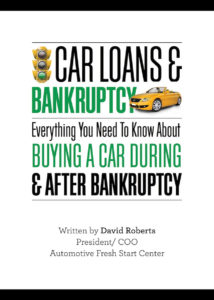
Bankruptcy can mean a fresh start for many, but it’s best to know as much about the process as possible before filing. Here are some important factors to keep in mind when considering bankruptcy.
Variables that Impact Bankruptcy
Whether filing for Chapter 7 or Chapter 13, bankruptcy may help or hurt a person’s situation depending on several variables, including:
- the types of debts owed
- the debtor’s income and expenses
- what the debtor hopes to achieve through bankruptcy
Considering Bankruptcy? Factors to Keep in Mind
Bankruptcy is not for everyone. After taking stock of their own financial situation, a person considering bankruptcy should factor in the following:
Bankruptcy has limitations. Bankruptcy does not simply eliminate all debt. There are limits of what both Chapter 13 and Chapter 7 bankruptcy can accomplish. A bankruptcy discharge, for example, will generally not erase student loan debt, or fines for speeding.
Bankruptcy has eligibility requirements. Not everyone drowning in debt is eligible for certain types of bankruptcy. Chapter 7 in particular has certain income requirements.
Bankruptcy can stop collection activities and halt lawsuits. A big consideration for bankruptcy filing is its ability to halt both debt collection and related lawsuits. If a creditor is harassing or even suing a debtor over missed payments, filing for bankruptcy may be the best solution.
Bankruptcy can have long-lasting consequences. In general, bankruptcy should be a last resort, when credit counseling and other resources have failed. This is because bankruptcy’s impacts on a person’s life, especially their credit score, can be disruptive and last a long time. Fortunately, certain programs, like 720 Credit Score, can drastically reduce the amount of time it takes to recover from bankruptcy.
Other details during and even after bankruptcy must be considered too. For example, if an auto loan is carried through the bankruptcy process, it may no longer be reported to the credit bureaus. This means on-time car payments won’t help a person’s credit score. It’s complicated detailed like this that makes professional advice from a bankruptcy lawyer so important when considering bankruptcy.
 For people considering bankruptcy, one of the biggest fears is:
For people considering bankruptcy, one of the biggest fears is:
“What will I do about a car?”
You likely believe that once you declare bankruptcy, you will have a hard time qualifying for an automobile loan. Our eBook with walk you through everything you need to know about buying a car during and after bankruptcy. Learn about your options so you can make the best decision for your circumstances.
Automotive Fresh Start Center, LLC is NOT a debt relief agency, as defined in section 101(12A) of the Bankruptcy Code. We do not provide bankruptcy assistance. The articles, videos, images, digital products, and other content maintained on this site as well as the opinions voiced in this material are for general informational purposes only and are not intended to provide specific advice or recommendations for any individual. No information on this site constitutes legal or financial advice and should not take the place of consulting with a licensed bankruptcy attorney, debt relief agency, or certified financial advisor.
